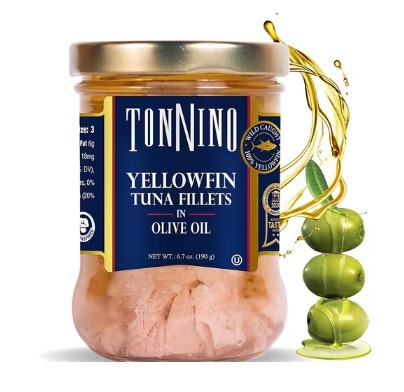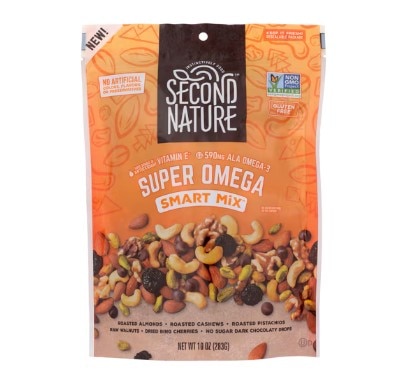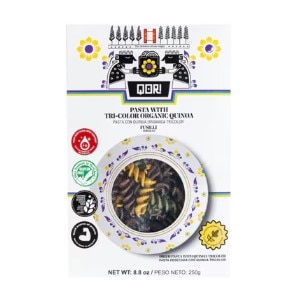Healthy eating habits influence total wellness, and brain health is no exception. Attention-Deficit Hypersensitivity Disorder (ADHD) is a well-known neurodevelopmental disorder that occurs in childhood and can continue into adulthood. Currently, ADHD affects 10.5% of children (ages 3-17) and 6% of adults in the U.S. Symptoms associated with ADHD include hyperactivity, impulsiveness and inattention. Although certain foods or additives have allegedly been associated with ADHD symptoms, the research is limited and inconclusive. With inconclusive data, it’s time to turn the attention to focusing on lifestyle changes in nutrition and ADHD.
The ADHD and Diet Connection: Foods to Load up
There is no specific diet for ADHD, however, we know that the nutrients that enter the body impact the brain’s processes. Diet and nutrition play a role in concentration and cognition. When exploring a meal plan beneficial for ADHD, the place to start is with nutritious foods that keep you energized and support balanced glucose levels. Let’s take a look at some nutrients that fuel brain health and may help adults and children with ADHD:
Protein
Protein is important for keeping the brain engaged and focused because it aids in creation of neurotransmitters. High protein foods like lean meats, fish, poultry, eggs, beans, cheese, seeds and nuts are a plus for blood sugar regulation. Incorporate protein-rich meals and snacks throughout the day.
Carbohydrates
Carbs provide the body with a continuous release of energy, but not all carbs are created equally. Spotlight carbs such as starchy vegetables (potatoes, sweet potatoes, corn), fruits (berries, kiwis, apples), whole grains (quinoa, whole grain bread and pasta) and legumes (beans, peas, lentils) that add satiety to the diet and are less likely to spike glucose levels. Pair these carbs with protein-rich foods and non-starchy vegetables (broccoli, cauliflower, carrots) for optimal nutrition for the body and brain.
Healthy fats
Omega-3 fatty acids are fats that are essential to the diet since they are not produced by the body. They play an important role in brain health and could assist in ADHD symptom management. When planning meals and snacks, add fatty fish (salmon, tuna, mackerel), canola or olive oils, chia or flax seeds and walnuts into the mix.
Hydration
Water is an essential nutrient of the body. Without proper hydration, a child’s brain function may be adversely affected, potentially causing brain cells to shrink leading to diminished cognitive function. Encourage children to drink water throughout the day by setting a reminder or adding colorful fruit (lemon, berries, lime) to perk up the flavor.
Foods to Pass Up
Although food does not cause ADHD, there are less nutritious food choices that may exacerbate symptoms tied to ADHD. For adults and children with an ADHD diagnosis to feel their best, consider eating the following foods in moderation.
Sugar
Consumption of foods high in added sugar provide minimal nutrients and tend to be higher in calories. High sugar foods are usually processed and associated with weight gain, diabetes risk and heart disease. They include sugar-sweetened beverages (soda, juice, sweet tea) and sweet desserts and snacks (cake, candy, cookies). The CDC recommends limiting added sugar intake to less than 10% of total daily calories for anyone over the age of 2.
Simple carbs
Sugar is a form of a simple or refined carbohydrate. Foods such as fruit naturally contain sugar along with nutrients and fiber that the body needs. Therefore, fruits should be included in a balanced diet. Carbohydrate foods that should be eaten sparingly are white bread and pasta (swap for whole grain options), sugary breakfast cereal and sweeteners such as honey as they can cause fluctuations in blood sugar levels affecting energy balance and mood.
Unhealthy fats
Fat is necessary for the absorption of vitamins and cell growth. The type of fat matters. A high fat diet dominated by unhealthy saturated fat could be harmful for brain development in children and increase the risk of cardiovascular disease. Keep unhealthy fats low in the diet by eating fried foods, butter, coconut and palm oils, full fat dairy products and high fat meats in moderation.
Caffeine
The body’s effect when caffeine is ingested differs for each person. For anyone taking medication for ADHD, an additional stimulant could cause unpleasant reactions such as anxiety, poor sleep quality or stomach discomfort. Caffeinated drinks such as coffee, tea, sodas and energy drinks should be limited by adults taking medication and totally avoided by children and teens.
Artificial additives
Artificial food additives are a controversial topic due to conflicting study outcomes. More conclusive evidence is needed to determine if synthetic coloring, artificial flavors, preservatives or artificial sweeteners in prepackaged or processed foods is at the root of hyperactivity in some children with ADHD. The American Academy of Pediatrics (AAP) recommends limiting these additives in children’s diets. Some foods associated with these additives include breakfast cereals, fruit punches, children’s vitamins and candies.
Food sensitivities
If food sensitivities or intolerances are suspected culprits to ADHD symptoms, some research indicates that eliminating the problematic food(s) could lead to a reduction in these symptoms. An improvement in behavior is likely only if a true food sensitivity or intolerance exists. Some foods, including wheat, soy, gluten, eggs and chocolate have been studied as potential sources of food sensitivity.
Nutritional Supplements
A consistent balanced diet should support a person’s micronutrient needs. If regularity is lacking, the opportunity for a nutritional deficiency exists. Studies have linked replenishing deficits in iron, magnesium, zinc, vitamin B6 and vitamin D to improved ADHD symptoms. Be cautious. Mega doses of supplements can be potentially toxic. Strive to consume these foods first:
- Iron– lean meat, lentils, and iron-fortified cereals and bread.
- Magnesium– legumes, fortified breakfast cereals, and milk.
- Zinc – oysters, poultry, and whole grains.
- Vitamin B6 – fish, beef liver, and chickpeas.
- Vitamin D – fortified milk, fish liver oil, and trout.
The management of ADHD symptoms looks different for everyone. Healthy eating habits should be used in conjunction with behavior modification and medication. Before starting any food elimination diet or nutritional supplements, check with a doctor or a registered dietitian, our nutrition experts, to ensure that daily dietary needs are met.




